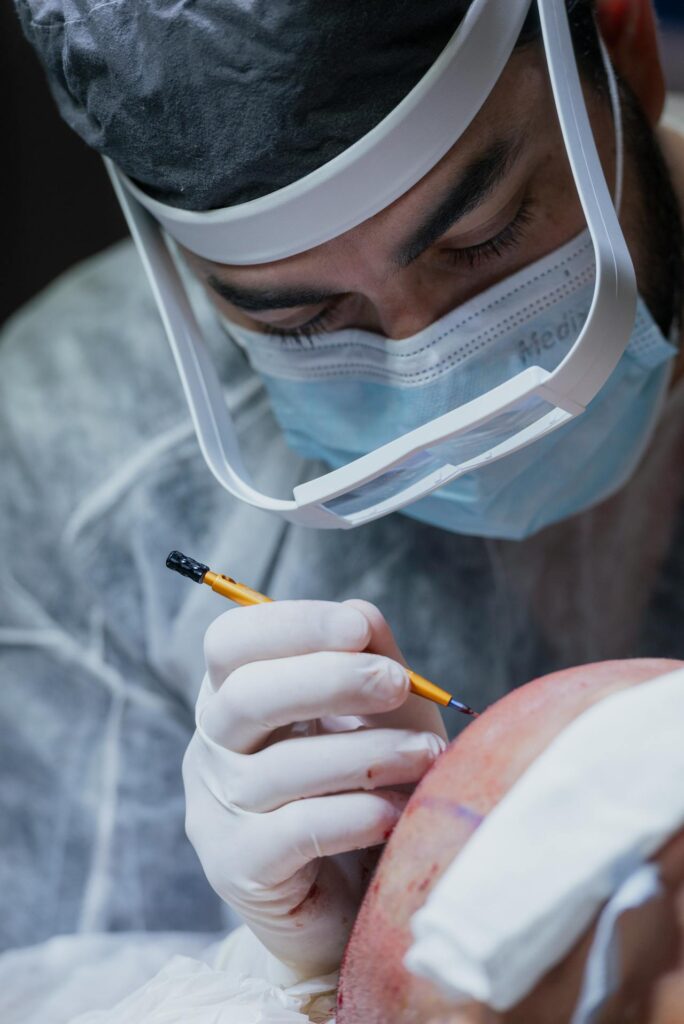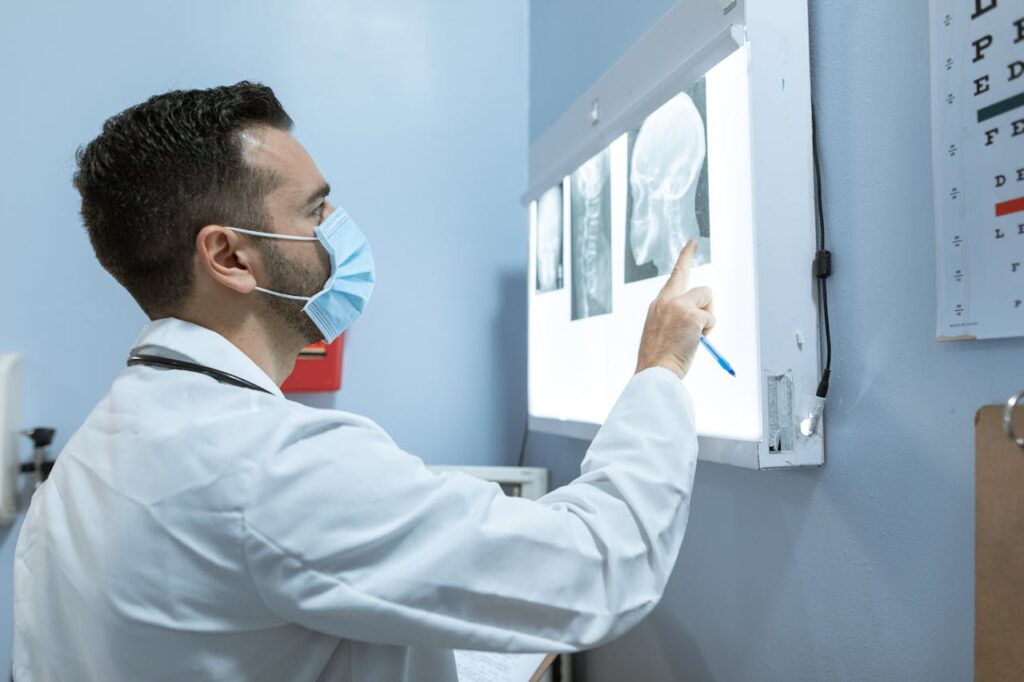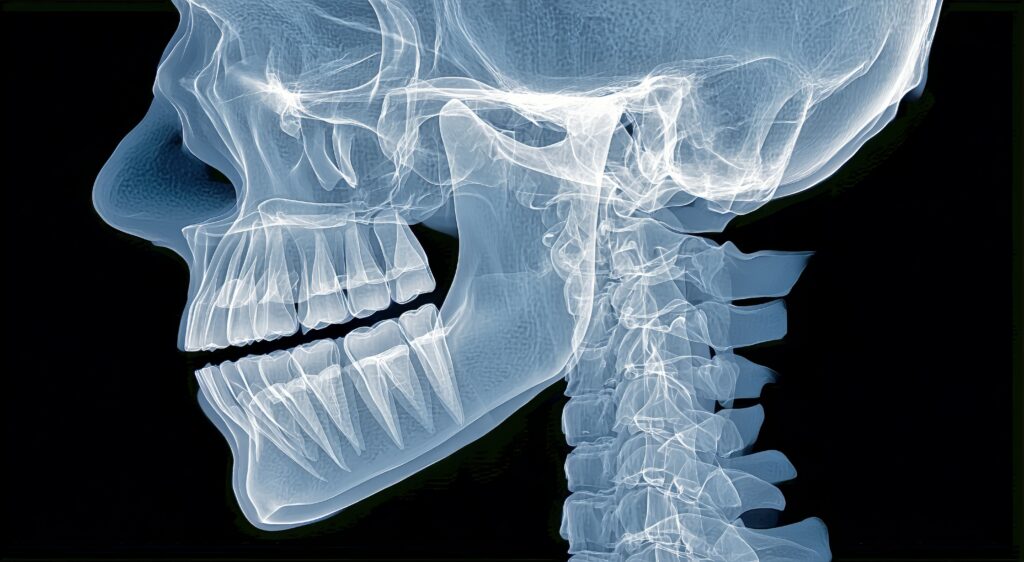Neurosurgery in Turkey: An Advanced 2025 Safe Guide
Neurosurgery in Turkey represents the intersection of advanced medical science and profound hope, offering life-changing solutions for patients with complex conditions of the brain, spine, and nervous system. The decision to undergo such a critical procedure requires absolute confidence in your medical team. Turkey has risen as a global powerhouse in this demanding field, renowned for its world-class surgeons and cutting-edge technology. At Medicaltour.io, we serve as your steadfast and knowledgeable guide, providing a secure pathway to the most esteemed neurology and neurosurgery centers in the country.
Why is Turkey a Global Center of Excellence for Neurosurgery?
Turkey’s international leadership in neurology and neurosurgery is built on a robust foundation of technological superiority, exceptional surgical expertise, and an unwavering commitment to patient safety and outcomes.
Firstly, the country’s leading neurology hospitals are equipped with the most sophisticated technology available. This includes advanced neuronavigation systems for unparalleled surgical precision, Gamma Knife radiosurgery for non-invasive tumor treatment, and intraoperative MRI. These tools allow surgeons to perform the most delicate operations with minimal risk and maximum effectiveness.
This technological excellence is complemented by rigorous quality standards, with many elite centers holding accreditation from the Joint Commission International (JCI).
Secondly, the best neurosurgeons in Turkey are globally recognized for their vast experience and skill. Having trained in top institutions worldwide, many are active members of prestigious bodies like the World Federation of Neurosurgical Societies (WFNS). They perform a high volume of complex procedures annually, from intricate brain tumor resections to deep brain stimulation, giving them a level of practical expertise that is crucial for successful outcomes.

Advanced Neurological and Neurosurgical Procedures Offered
Turkish medical centers provide a comprehensive spectrum of treatments for a wide range of neurological disorders, offering hope where it was once limited.
Deep Brain Stimulation (DBS)
DBS is a revolutionary procedure for movement disorders like Parkinson’s disease, essential tremor, and dystonia. Often described as a “pacemaker for the brain,” it involves implanting electrodes in specific brain areas to regulate abnormal nerve signals. The deep brain stimulation Turkey cost is significantly more accessible than in many other countries, making this life-altering therapy available to more patients.
Epilepsy Surgery Turkey
For patients with medication-resistant epilepsy, surgery can offer a potential cure. Turkish centers use advanced brain mapping techniques (such as Stereo-EEG) to precisely identify the seizure focus. Surgical procedures can then remove this area, often leading to complete seizure freedom and a dramatically improved quality of life.
Brain Tumor Surgery Turkey
Treating brain tumors requires a multidisciplinary approach and surgical precision. Turkish neurosurgeons use advanced techniques like awake craniotomy to remove tumors in critical areas while preserving vital functions like speech and movement. For inoperable or residual tumors, non-invasive Gamma Knife radiosurgery offers a highly effective treatment option.

Your Safe Neurosurgery Journey with Medicaltour.io
Navigating a major surgery abroad requires expert guidance and support. We have perfected a process that is safe, transparent, and centered around your well-being.
- Expert Medical Review: Your journey begins with a secure online consultation. We facilitate a thorough review of your medical records and imaging (MRI, CT scans) by a top Turkish neurosurgeon to determine your candidacy and recommend a treatment plan.
- Transparent & Comprehensive Planning: We provide a detailed, all-inclusive package covering the surgery, ICU and hospital stay, all pre-operative tests, accommodation, and private VIP transfers. We ensure complete transparency with no hidden costs.
- Arrival and Pre-Operative Care: Upon arrival, you will be comfortably transferred to your hotel. You will then have an in-depth, in-person consultation with your entire medical team, including the neurosurgeon, neurologist, and anesthesiologist.
- The Procedure and ICU Monitoring: Your surgery will be performed in a JCI-accredited hospital. Post-operatively, you will be monitored around-the-clock in a specialized neuro-intensive care unit (ICU) by an expert team.
- In-Hospital Recovery and Rehabilitation: Once stable, you will continue your recovery in a private room. Neuro-rehabilitation will begin as soon as medically appropriate to optimize your recovery. You can find many of these Ministry of Health authorized healthcare providers on our platform.
- Discharge and Continued Support: Before you travel home, you will receive a comprehensive discharge plan. We facilitate long-term follow-up communication with your Turkish surgeon. You can explore more on portals like HealthTürkiye.

Cost vs. Quality: Access to World-Class Care
The cost of advanced neurosurgery can be a prohibitive barrier in many countries. A procedure like Deep Brain Stimulation (DBS) can exceed $100,000 in the USA. The cost of the same neurosurgery in Turkey is often 60-70% less. This significant financial advantage is due to Turkey’s economic structure, not a compromise on the quality of the technology, the hospital facilities, or the internationally-trained surgeons. This value proposition makes essential, life-changing care accessible to patients globally.
Compare Neurology & Neurosurgery prices in Turkey by clicking here!
Frequently Asked Questions (FAQ)
Is neurosurgery in Turkey safe?
Yes. When conducted in a high-volume, JCI-accredited hospital by an experienced, board-certified neurosurgeon, the safety and success rates are on par with the best centers in the world. Booking through a trusted platform like Medicaltour.io ensures you are connected only with these elite, vetted institutions.
How long will I need to stay in Turkey?
The length of stay depends on the complexity of the surgery. For a major procedure like DBS or a brain tumor resection, a stay of 4 to 6 weeks is typically required. This includes pre-operative evaluation, the hospital stay, and a period of initial recovery and follow-up before you are cleared to fly home.
What is the recovery process like?
Recovery is a gradual process and is highly individualized. An expert team of physiotherapists, occupational therapists, and speech therapists will be involved in your care from the early stages to help you achieve the best possible functional recovery.
How can I get a medical opinion from a Turkish neurosurgeon?
The process is simple and begins with a free consultation. Contact us via our website, and our team will guide you on how to securely submit your medical reports and MRI/CT scans to one of our top-rated providers for a no-obligation expert opinion.
Glossary of Neurosurgery Terms
Deep Brain Stimulation (DBS): A neurosurgical procedure involving the implantation of a medical device called a neurostimulator, which sends electrical impulses to specific targets in the brain.
Neuronavigation: Computer-assisted technology used by neurosurgeons to guide their instruments within the skull, acting like a GPS for the brain to increase accuracy.
Gamma Knife Radiosurgery: A type of radiation therapy that uses hundreds of highly focused gamma-ray beams to treat brain tumors and other abnormalities without a surgical incision.
Craniotomy: The surgical removal of part of the bone from the skull to expose the brain. The bone flap is typically replaced after the surgery is done.
Epilepsy: A central nervous system (neurological) disorder in which brain activity becomes abnormal, causing seizures or periods of unusual behavior, sensations, and sometimes loss of awareness.
How can I get a second opinion on my diagnosis?
MedicalTour.io facilitates this process. You can securely submit your medical records through our platform to receive a second opinion from a leading Turkish specialist, which can help you make a more informed decision about your treatment.
Is minimally invasive spine surgery available?
Yes, minimally invasive techniques are the standard of care for many spinal conditions, such as herniated discs. These procedures involve smaller incisions, less muscle damage, and a significantly faster recovery compared to traditional open surgery.
What is Gamma Knife, and is it available in Turkey?
Gamma Knife is a highly precise form of radiosurgery (radiation therapy) used to treat brain tumors and other abnormalities without any surgical incision. Yes, this advanced technology is available at several leading hospitals in Turkey.
How is post-operative care managed?
You will be closely monitored in a specialized neuro-intensive care unit after your surgery. A dedicated team of nurses, doctors, and physiotherapists will manage your recovery. Upon discharge, you will be given a detailed plan for medication and follow-up, which can be coordinated with your local doctor back home.
Navigating a neurological diagnosis can be overwhelming, but you are not alone. Explore the profiles of Turkey’s leading neurology and neurosurgery centers on MedicalTour. Request a free, confidential medical review to get a clear and expert opinion on your best path forward.
Glossary
| Term | Short Explanation |
|---|---|
| Craniotomy | Surgical opening of the skull to access the brain. |
| Cranioplasty | Surgical repair or reconstruction of the skull. |
| Aneurysm Clipping | Surgical placement of a clip to stop blood flow to a brain aneurysm. |
| Endovascular Coiling | Minimally invasive procedure to block blood flow into an aneurysm. |
| Tumor Resection | Surgical removal of a brain or spinal cord tumor. |
| Stereotactic Radiosurgery (Gamma Knife®) | Precise radiation treatment for brain lesions without incision. |
| Spinal Decompression | Surgery to relieve pressure on the spinal cord or nerves. |
| Laminectomy | Removal of part of the vertebra to ease nerve compression. |
| Discectomy | Removal of a herniated or damaged spinal disc. |
| Microdiscectomy | Minimally invasive removal of a herniated disc. |
| Cervical Fusion | Fusion of cervical vertebrae to stabilize the spine. |
| Lumbar Fusion | Fusion of lumbar vertebrae to relieve pain and stabilize the spine. |
| Deep Brain Stimulation (DBS) | Implantation of electrodes in the brain to control movement disorders. |
| Ventriculoperitoneal (VP) Shunt | Device implanted to drain excess cerebrospinal fluid. |
| Carotid Endarterectomy | Removal of plaque from the carotid artery to restore blood flow. |
| Thrombectomy | Surgical removal of a blood clot from a blood vessel. |
| Neuroendoscopy | Minimally invasive use of an endoscope for brain or spinal surgery. |
| Burr Hole Surgery | Small hole drilled in the skull to relieve pressure or drain fluid. |
| Foraminotomy | Enlargement of the opening where nerve roots exit the spine. |
| Neuro-Oncology Surgery | Surgical treatment of tumors in the nervous system. |
| Peripheral Nerve Surgery | Repair of damaged peripheral nerves. |
| Epilepsy Surgery | Removal or disconnection of brain areas causing seizures. |
| Pituitary Surgery | Surgical removal of pituitary gland tumors. |
| Chiari Malformation Surgery | Surgery to relieve pressure caused by brain tissue extending into the spinal canal. |
| Hydrocephalus Treatment | Surgical methods to drain excess cerebrospinal fluid. |
| Minimally Invasive Spine Surgery (MISS) | Spine surgery using small incisions for quicker recovery. |
| Brain Mapping | Identifying brain regions responsible for critical functions before surgery. |
| Awake Brain Surgery | Performing brain surgery while the patient is awake to protect vital functions. |
| Neurovascular Surgery | Surgical treatment of blood vessel disorders in the brain and spine. |
| Spinal Cord Stimulator Implant | Device implanted to manage chronic spinal pain. |


